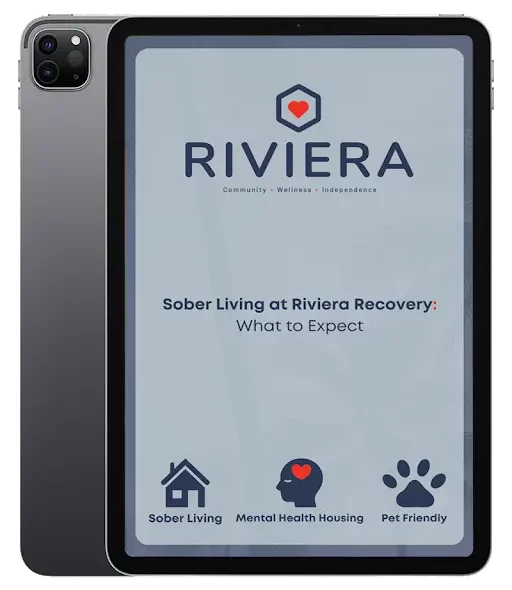Sober living programs are available to support individuals who are recovering from heroin addiction as they reintegrate into daily life and are a critical part of the recovery journey. Heroin addiction is a persistent and recurring condition, and a secure and supportive living atmosphere can significantly lower the odds of a relapse. Sober living residences provide a drug-free atmosphere, normal supervision of occupants, and a society of peers who are in recovery and are able to help and motivate each other to remain abstinent.
This article will discuss what sober living homes are, what to expect in these programs, and why they are a vital component of a successful recovery from heroin addiction.
Sober living homes are essential for those recovering from heroin addiction as they offer support, structure, and access to resources to assist with transitioning back into day-to-day life.
What is a Sober Living Home?
A sober living home is a sort of collective home for people who are in the process of getting over an addiction or substance abuse. These homes give a secure, drug-free atmosphere where occupants can stay while remaining sober. Sober living homes generally have house regulations that forbid the utilization of drugs or liquor, and may likewise have different rules in place to preserve sound and safe living conditions.
Many sober living houses likewise offer support in the form of therapy or 12-step meetings and require occupants to go to household meetings or support groups as a condition of living there. The principle objective of a sober living home is to provide a supportive and encouraging environment for people as they attempt to move forward in recovery and transition back into independent living.

What to Expect
Upon being accepted into a sober living residence, occupants must go through an admission process, which involves filling out forms and taking a drug or alcohol test. During this procedure, the regulations of the home, such as the time for returning home, housekeeping duties, and how to interact with the other residents, are also normally outlined.
When living in a sober living house, residents should expect to be subject to routine drug testing, attend group sessions or therapy, and take part in community projects, such as chores and other obligations. The sober living home could also require that its occupants go to 12-step meetings or other addiction-related activities. Furthermore, they should have access to counseling, therapy, and other resources to help them remain clean and work on any problems that may have caused their substance abuse.
Before a resident departs the sober living home, they are likely to have a talk with a staff member or a therapist to evaluate their progress and make plans for maintaining sobriety. The individual will also be provided with resources and support group details from the local community to aid them in their recovery journey.
Download Our FREE eBook
We encourage you to download our informational eBook that illustrates what you can expect within Riviera Recovery’s sober living program

How Much Does Sober Living in Los Angeles Cost?
The cost of sober living residency can differ based on factors such as the region, amenities, and the amount of framework and assistance offered. Some sober living homes may be managed on a charitable basis and offer reduced expenses or sliding scale fees, while others may be for-profit and charge higher prices. Usually, sober living homes require a monthly rent payment, which may range anywhere from a few hundred to several thousand dollars each month. Some homes may also impose extra fees for services like drug screening or housekeeping.
It is worth noting that insurance plans typically do not cover sober living homes. Subsequently, the cost of staying in such a home usually needs to be paid out of pocket. Fortunately, a few sober living homes may accept help from government programs such as Section 8, or other government-funded assistance programs, to provide financial assistance to those in need. Therefore, it is important to explore different options and decide on a sober living home that fits both one’s needs and budget.
How Long Can You Stay in a Sober Living Home?
The amount of time one spends in a sober home may differ depending on the individual’s necessities and the policies of the sober home in question. Certain sober homes may have a maximum stay of a few months, while others could permit inhabitants to stay for up to one year or longer.
Generally, sober living homes do not have a preset time limit for inhabitants, rather, they establish the requirement for good behavior and progress in healing. Thus, a resident can stay in a sober living home as long as they are observing their sobriety, adhering to the rules of the home, and engaging in recovery-related events.

What Are The Most Important Factors in a Successful Recovery?
A successful addiction recovery requires more than just willpower and determination; it is a complex process that involves several different factors. Every person’s journey toward recovery is unique, but understanding the various factors in play can help guide them through the process of overcoming heroin addiction. Important factors include:
Commitment to Change
A strong commitment to change is essential for anyone wanting to overcome addiction. It requires a person to invest time and effort in order to make lasting life changes that will support their recovery. This could include seeking professional help, changing unhealthy habits, and building healthy relationships. Developing a solid foundation of self-care is also important as this will give an individual the strength and resilience they need to tackle the difficult days ahead. With a positive attitude and dedication, it is possible to overcome addiction and lead a fulfilling life.
Professional Support
Professional support is an essential part of addiction treatment, as counselors, therapists and medical staff are the best prepared to guide an individual in overcoming the complex mental and physical issues that are associated with heroin addiction. A comprehensive treatment plan should always include the support of a licensed professional who has the experience and qualifications to recognize addiction patterns and develop effective strategies to help individuals on their road to recovery.
Comprehensive Treatment
A comprehensive treatment plan should be developed for each individual, as addiction affects people differently. This plan should not only address the physical components of addiction but also the psychological factors that may have contributed to the development of the addiction in the first place. Additionally, it is important to include strategies to help the individual cope with their cravings and triggers in order to maintain long-term sobriety.
Social Support
Social support is an essential part of the recovery process. A strong network of family, friends, and support groups can provide emotional and moral support to help the person stay motivated and focused during recovery. Furthermore, these social connections can also provide practical assistance such as providing meals or rides to medical appointments. Thus, it is important to build and maintain a strong network of social support to ensure a successful recovery.
Continuing Care
Recovery from addiction and mental health issues is an ongoing process that requires continuous care. It is important to maintain the progress made during treatment, which can include individual counseling, support groups, and other services. Continuous care is essential to ensure individuals remain on the path of recovery and overall well-being.

Why Sober Living is Important for Recovering Heroin Addicts
Sober living homes are essential for those who are trying to get over their addiction to heroin for a handful of reasons. Primarily, they furnish a secure and constant atmosphere for people in the early stages of recovery who could be tempted to return to their former living conditions and relapse. Moreover, sober living homes usually have regulations in place to back up their commitment to sobriety, such as obligatory drug screenings and curfews.
Furthermore, sober living homes present a chance for individuals in the process of recovery to establish a daily routine and structure that can be beneficial for their continued sobriety. The homes also present a sense of community and assistance since typically the residents are going through similar circumstances and can provide one another with both motivation and accountability.
Finally, Sober Living offers those in the process of healing an opportunity to reconstruct their life. This involves being able to go back to work, school, or any other activities that had to be put on pause because of substance abuse, which can assist in boosting self-confidence and reigniting a sense of purpose.
In conclusion, these programs can be a significant stepping stone for those recovering from heroin addiction, offering them a dependable basis for their subsequent efforts to recuperate.
Sober Living Homes in Los Angeles, CA
If you are recovering from heroin addiction and looking for a sober living house in Los Angeles, Riviera Recovery is here to assist you. At Riviera Recovery, we understand the importance of sober living after inpatient treatment. We are committed to helping patients transition into successful sober living and providing them with the support and resources they need along the way.
Our team of highly trained professionals is dedicated to helping individuals develop the skills and self-confidence necessary to maintain a sober lifestyle long after they leave our care. We believe that sober living is essential for true recovery, and we are here to help every step of the way.
To learn more about our sober living programs or if you have any questions, contact the professionals at Riviera Recovery today.


